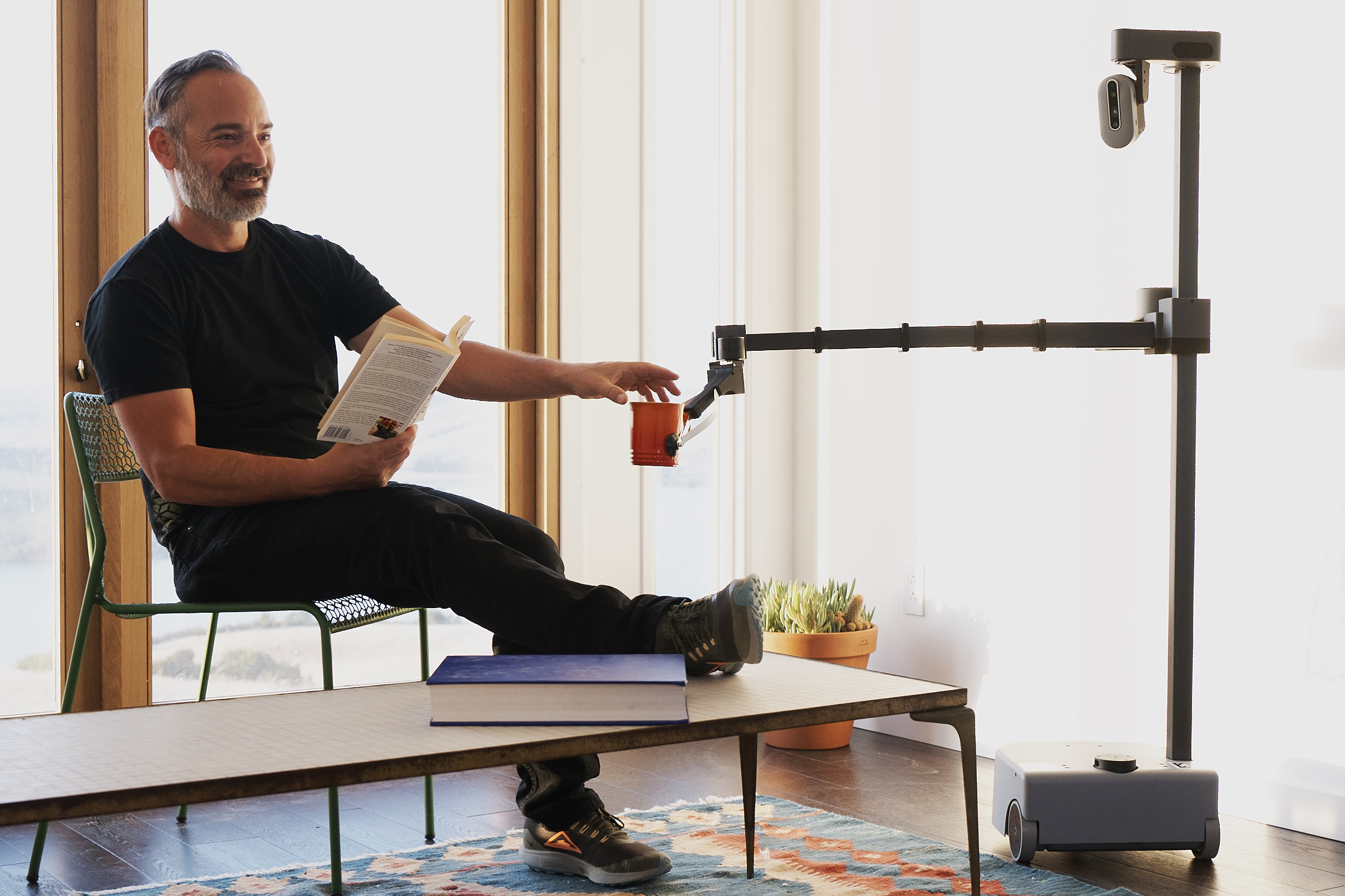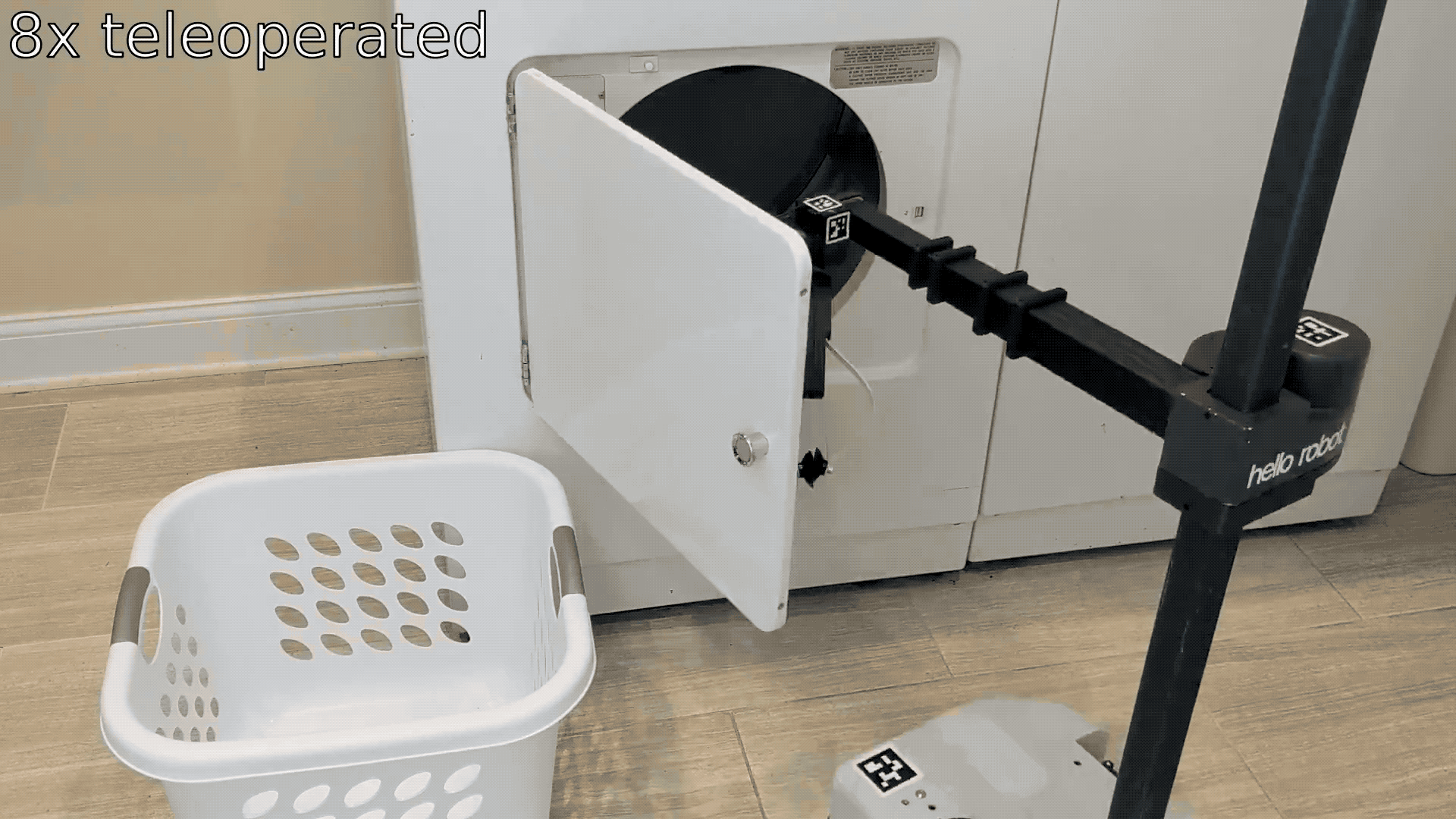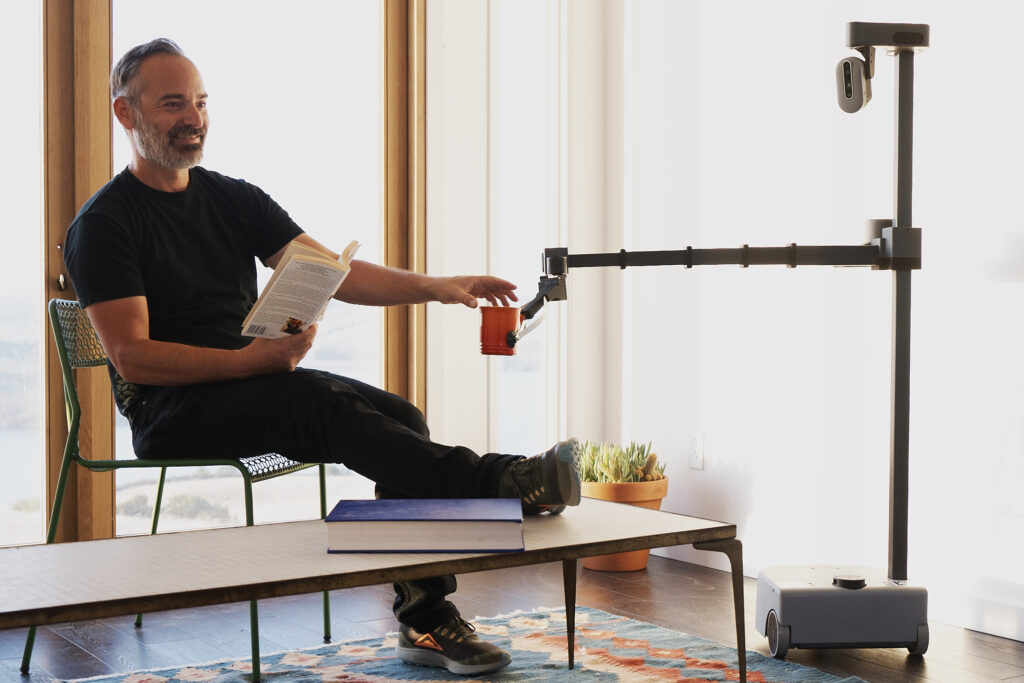This is Stretch — or, more precisely, the Stretch Research Edition. The name certainly conveys the tall, skinny and minimalist design of the home helper robot. Stretch is different and somehow familiar, with a straightforward technical design that adapts a number of standard robotic elements designed to offer a versatile machine that’s capable of navigating a house and getting out of the way when necessary.
It’s the first product out of Bay Area-based Hello Robot. Fresh out of three years operating in stealth, the company was founded by CEO Aaron Edsinger, a Georgia Tech product who was previously the director of Robotics at Google after its acquisition of his company, Redwood Robotics, in 2013.

Image Credits: Hello Robot
Stretch is still in quite early stages. At $17,950, it’s really more of a developer platform at the moment, but it’s easy to see how the company could ultimately spin it into something more commercial, with the right software. “Subsequent editions of Stretch will likely be targeted more directly at commercial applications,” says Edsinger, “but at this point we’re focused on providing the best customer experience possible with the Research Edition.” In addition to a gripper, the robot also sports a 3D camera and range finder for navigating and an on-board computer. On the software side, it uses a combination of ROS and Python.
It’s an open-sourced platform, designed to help robotics develop a unique range of potentially useful tasks for the home and retail setting.

Image Credits: Hello Robot
“What sets this robot apart is its extraordinary reach — which is why we named it Stretch,” Edsinger, says in a release. “Its patent pending design makes possible a range of applications such as assisting an older parent at home, stocking grocery shelves, and wiping down potentially infectious surfaces at the workplace. We see Stretch as a game-changing platform for researchers and developers who will create this future.”
Again, this is all still quite early. Hello Robot is still a small team — with a headcount of fewer than 10 employees at the moment. Thus far, the startup has been completely bootstrapped. Edsinger tells TechCrunch, “based on customer response so far we expect to have a healthy and profitable business.”





